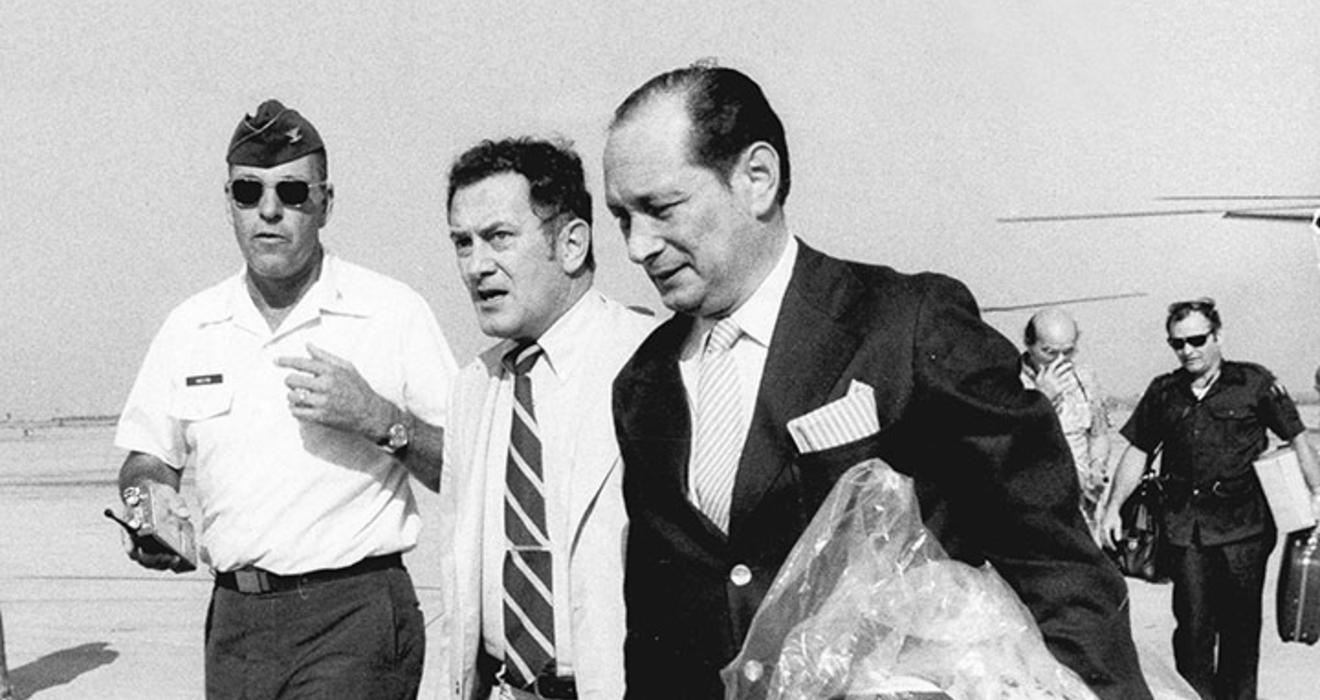
Sept. 4, 1929 – Jan. 9, 2015
Robert V. Keeley ’51 *71 served more than three decades as an American diplomat — and to say his postings were volatile would be an understatement.
He served in Greece in the late 1960s, when a “colonels’ coup” led to a military government; Keeley ruffled feathers by maintaining contact with pro-democracy groups. Later, Keeley managed to get out of Idi Amin-era Uganda with just hours to spare, while wearing a tuxedo. After that, he helped engineer a smooth embassy evacuation from Pol Pot’s Cambodia.
“He was proud of the fact that in Cambodia, he and Ambassador John Gunther Dean managed to get everybody out safely, including the people who worked for us,” recalls his widow, Louise Schoonmaker Keeley, of the April 1975 evacuation of the U.S. embassy in Phnom Penh.
For Keeley, at 85, diplomacy ran in the family. Born in Beirut to a diplomat father, he went to school in Canada, Greece, and Belgium. However, Keeley came to his own foreign-service career in a roundabout way. In college he was interested in writing and publishing; his thesis was to be published as a novel by Simon & Schuster until Keeley, a self-described “arrogant young man,” refused to make changes requested by his editor. (“Actually, the novel was terrible — it was very experimental, with one paragraph and no punctuation,” he recalled in a 2000 interview.)
Then he studied English at Princeton’s Graduate School, thinking he might become an academic, but left after 18 months. (Years later, he returned to the Woodrow Wilson School as a mid-career fellow.) After a stint in the Coast Guard, Keeley took the Foreign Service exam “out of desperation.”
Posted first to Jordan, he requested a reassignment to escape his father’s shadow in the Middle East. Keeley headed to Africa, where new embassies were opening. He began in Mali, and his assignments quickly rose in intensity. “Evacuation from different postings did not affect Robert Keeley personally, but it certainly affected his family,” says Dean. Louise was considered one of the most evacuated spouses in the Foreign Service.
“He was always ready to look at things to see where the truth lay, and that can get you in trouble.”
Professor Edmund L. Keeley ’48, Robert V. Keeley ’51 *71’s brother
Keeley’s postings eventually became more relaxed: ambassador to the Indian Ocean island nation of Mauritius (from where he once smuggled 36 geckos into the United States for a friend), then to newly independent Zimbabwe, and finally to Greece, before he retired in 1989. His second tour in Greece offered the payoff for his strategy of maintaining ties to pro-democracy forces; by then, the Greek leader, Andreas Papandreou, was one of those forces. Years later, in 2010, Keeley recounted the struggles over democracy in Greece in The Colonels’ Coup and the American Embassy: A Diplomat’s View of the Breakdown of Democracy in Cold War Greece.
This isn’t to say that Keeley’s outspokenness was appreciated at the time, especially within his own country’s diplomatic ranks. “He was always ready to look at things to see where the truth lay, and that can get you in trouble,” says his brother, longtime Princeton English and Hellenic studies professor Edmund L. Keeley ’48.
Indeed, in his retirement, Keeley took to handing out business cards with the title “Consulting Iconoclast.” In 1995, he founded Five and Ten Press to publish short works “that were being either rejected or ignored by the media and mainstream publishers.” For the series, Keeley collected reminiscences by almost three dozen distinguished diplomats.
Despite his hair-raising experiences in the Foreign Service, he was a “very modest” man, says Plato Cacheris, a Washington lawyer who was one of Keeley’s closest friends. “He went in and did his job professionally, without bragging.”
Keeley was “‘Princeton in the nation’s service’ personified,” adds F. Allen (Tex) Harris ’60, a fellow diplomat and former president of the American Foreign Service Association. “He stood tall, always.”
Louis Jacobson ’92 interviewed Robert Keeley for PAW in 2000.






No responses yet